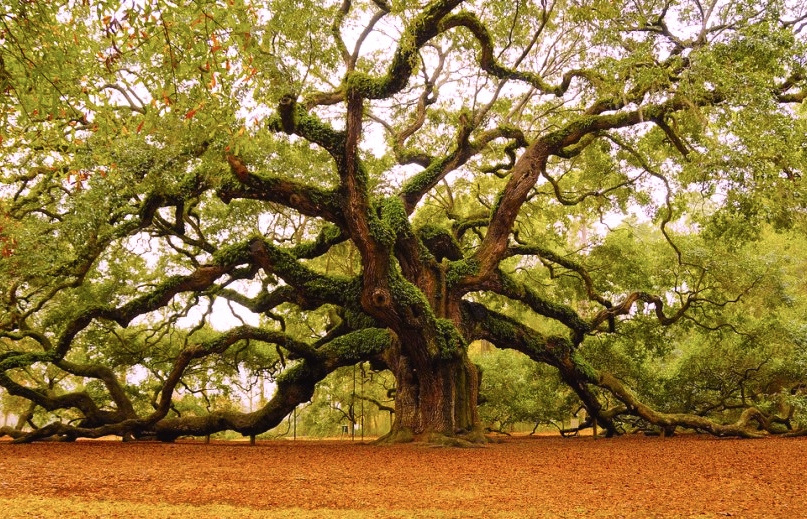Hybrid Poetry by Susan Terris

The Djinn of Madialy
When the American arrived, Senegalese children were quick to show him trees possessed by djinn, usually old ones with long droopy branches. An optimist, he preferred to believe that the ones living in the tree above his hut were benevolent. Those, the children told him, were ancient and quite tiny. His protectors, he decided. From the elders, he heard that djinn were white in color—not like white people’s skin—but paper-white, tall, and with elongated backward legs. The American was a kind of nonbelieving believer until a farmer named Amadou took him into a millet field to see a tree that was possessed. There the farmer made a machete slash in the bark and out oozed a sap that looked like pus from a wound. On the other side of the tree, a machete cut ran with sap the color of blood. “The djinn here is old yet beautiful,” the farmer told him, “with her feet backward and a limp.”
The American nodded, wondering how many machete cuts it had taken to create the limp and deciding he preferred to befriend the ones in the tree above his hut. They wouldn’t sweep or do laundry, but, if asked, they might add more moringa or bits of bush meat to his basi. Before he could act on these impulses, Amadou appeared at his door with a basket of kola nuts, telling him that he wanted the American to marry his daughter. The kola nuts, blessed by the djinn with the limp, were part of the dowry being offered. Looking down, the American—making sure his feet were still pointed forward—proposed to the cluster of tiny djinn in the tree above. Then he told the farmer he was sorry, but he already had many jealous spouses and even one more would cause them to attack his manhood with their little kitchen knives.
Art Information
- "African Tree" © Marvin Foushee; Creative Commons license.
 Susan Terris’s most recent books are Familiar Tense (Marsh Hawk Press, 2019); Take Two: Film Studies (Omnidawn Publishing, Fall 2017); Memos (Omnidawn Publishing); and Ghost of Yesterday: New and Selected Poems (Marsh Hawk Press). She is the author of seven books of poetry, sixteen chapbooks, three artist's books, and one play. Her journal publications include the Southern Review, Denver Quarterly, Georgia Review, Ploughshares, and several past works in Talking Writing. A poem of hers from Field appeared in Pushcart Prize XXXI. A poem from Memos was in Best American Poetry 2015.
Susan Terris’s most recent books are Familiar Tense (Marsh Hawk Press, 2019); Take Two: Film Studies (Omnidawn Publishing, Fall 2017); Memos (Omnidawn Publishing); and Ghost of Yesterday: New and Selected Poems (Marsh Hawk Press). She is the author of seven books of poetry, sixteen chapbooks, three artist's books, and one play. Her journal publications include the Southern Review, Denver Quarterly, Georgia Review, Ploughshares, and several past works in Talking Writing. A poem of hers from Field appeared in Pushcart Prize XXXI. A poem from Memos was in Best American Poetry 2015.
Terris was editor of Spillway Magazine and is a poetry editor of Pedestal Magazine. For more information, visit Susan Terris's website.
Here, she describes the origin for the "The Djinn of Madialy":
The story was told to me by my grandson Eli Terris while he was in the Peace Corps (four years in Senegal, Mali, and Sierra Leone). It's about belief and non-belief, revolving around a djinn tree that he was shown while living in Senegal. He "gifted" me with the story and has vetted it. He's now received his MA in forestry from Yale. We share strong mutual interests in trees and in how spiritual beliefs become fabular.
Photo of Susan Terris by Margaretta Mitchell.
